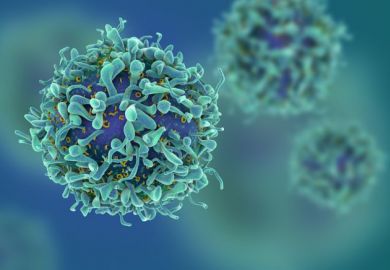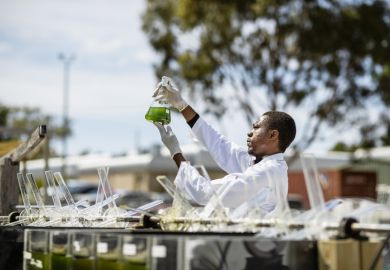Social science studies in top journals that fail to replicate are cited far more often than similarly prestigious papers whose results are reproducible, an analysis suggests.
Reviewing three recent projects that attempted to replicate high-profile studies published in leading economics, psychology and science journals, researchers from the University of California, San Diego found that those papers whose findings could not be reproduced enjoyed substantially more citations, even after this failure to replicate was made public.
Papers that could not be replicated were cited on 16 more occasions annually on average over a three-year period than those that could be replicated, according to the analysis of 80 replication studies published in the journal Science Advances on 21 May.
That difference was even higher for non-replicable papers published in Nature and Science, where the eight papers that could not be replicated were cited 38 to 44 times a year more than the 13 papers whose findings were reproduced.
The authors – economists Marta Serra-Garcia and Uri Gneezy – considered whether the higher citation counts might be explained by the reporting of their non-replication but found that these replication projects were mentioned in only 12 per cent of post-replication citations.
As it was now possible to predict which papers would be replicable using “prediction markets”, journal reviewers and editors faced a “trade-off” between publishing “interesting” but potentially flawed work that would gain publicity and citations or admitting more robust studies that might not attract “hype”.
Explaining why journals were happy to allow non-replicable studies to be published, the authors speculate that “when the results are more ‘interesting’, [reviewers] apply lower standards regarding its reproducibility”.
“Although they expect some results to be less robust than others…they are willing to accept this lower expected reliability of the results in some cases,” they explain.
That pattern of publication fits with findings made by King’s College London psychologist Stuart Ritchie, whose recent book Science Fictions argued that pressure to receive grants and publish positive results favours “showy and ostentatious findings over…studies that only add small pieces to our knowledge”, the authors say.
That trade-off could help to “explain the source of the replication crisis in social sciences”, the authors continue, which could be addressed if the sector began to “increase the cost of publishing problematic data”.
One potential answer is to publish the name of the editor in a manuscript, which would allow readers to go back to them for comment about the editorial process if the results fail to replicate, they suggest.
Register to continue
Why register?
- Registration is free and only takes a moment
- Once registered, you can read 3 articles a month
- Sign up for our newsletter
Subscribe
Or subscribe for unlimited access to:
- Unlimited access to news, views, insights & reviews
- Digital editions
- Digital access to THE’s university and college rankings analysis
Already registered or a current subscriber?








